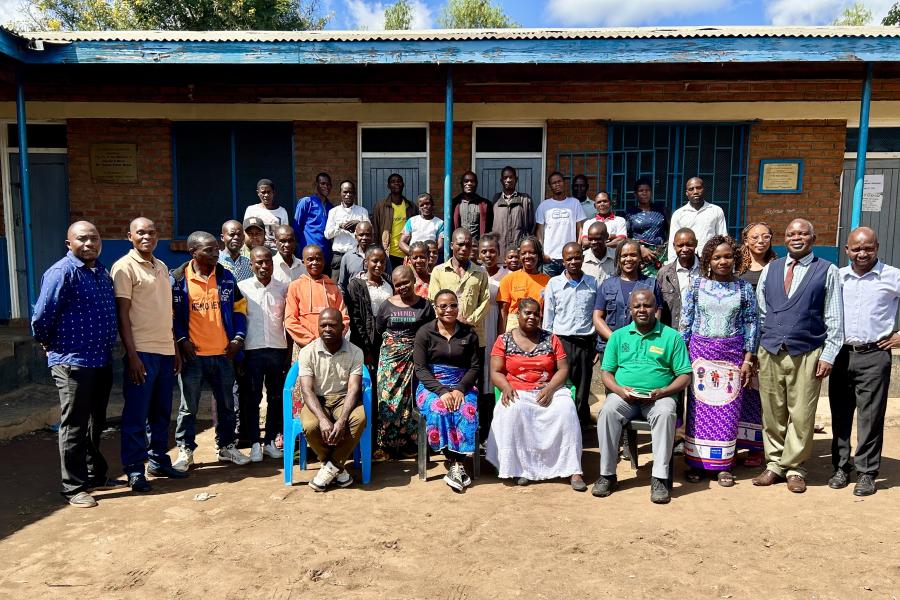Strengthening PSEAH in Humanitarian Emergencies: Empowering Communities for Safer Spaces

PSEAH is not only about preventing harm but also about restoring dignity and safety in the most trying circumstances.
During humanitarian crises, vulnerable populations, particularly women and children, face heightened risks of sexual exploitation, abuse, and harassment (SEAH). Protection from Sexual Exploitation, Abuse, and Harassment (PSEAH) is not just a policy obligation but a humanitarian imperative. Addressing these risks requires proactive, community-rooted interventions that empower local actors and foster a culture of accountability.
Building Capacity in Refugee Camps
One of the key interventions in recent efforts to combat SEAH has been the targeted training of frontline workers in refugee settings. In collaboration with Ministry of Gender, WHO Malawi conducted a two-day PSEAH training in Nyamithuthu Settlement Camp and Tengani Transit Centre for 77 frontline workers (10 Ministry of Health Surveillance Assistants, 29 Health Committee volunteers and 38 PSEAH/GBV Committee volunteers). These individuals were equipped with the knowledge to identify, prevent, and respond to incidents of SEAH, and to support survivors through referral pathways and access to essential services.
This training emphasized:
- Understanding the meaning of SEAH
- Recognizing power imbalances and their role in SEAH
- Ethical and survivor-centered reporting mechanisms
- Confidentiality, empathy, and appropriate service referral
- Community outreach strategies to raise awareness and build trust
By empowering volunteers and healthcare workers, the initiative ensured that prevention and response mechanisms are embedded at the grassroots level—where they are most urgently needed.
Engaging Community Gatekeepers in Emergency-Prone Districts
Equally vital is the role of traditional, religious leaders and other community leaders, who are often the first point of contact for community concerns and can shape attitudes and behaviors. In another significant effort, 198 traditional, religious and other community leaders across five emergency-prone districts (Phalombe, Munanje, Neno, Machinga and Mangochi underwent a full day orientation on PSEAH. These leaders were engaged in dialogue about their role in preventing SEAH and promoting dignity, equity, and justice within their communities.

Their involvement contributes to:
- Destigmatizing discussions around SEAH
- Encouraging community members to report abuse without fear
- Promoting zero tolerance of sexual exploitation and abuse by humanitarian actors
- Strengthening community-based protection networks
By integrating these trusted figures into the protection framework, communities are more likely to adopt PSEAH principles as shared values rather than imposed policies.
Toward a Survivor-Centered, Community-Driven Approach for gender equality
These two examples highlight a growing recognition that PSEAH must be integrated into all facets of emergency response. Whether through health workers in refugee camps or traditional leaders in at-risk districts, the key lies in creating trusted, informed, and capable community actors who can act quickly and compassionately.
PSEAH is not only about preventing harm but also about restoring dignity and safety in the most trying circumstances. As humanitarian crises continue to unfold around the world, efforts like these serve as a model for how to engage, educate, and empower those on the frontlines to protect the most vulnerable.




